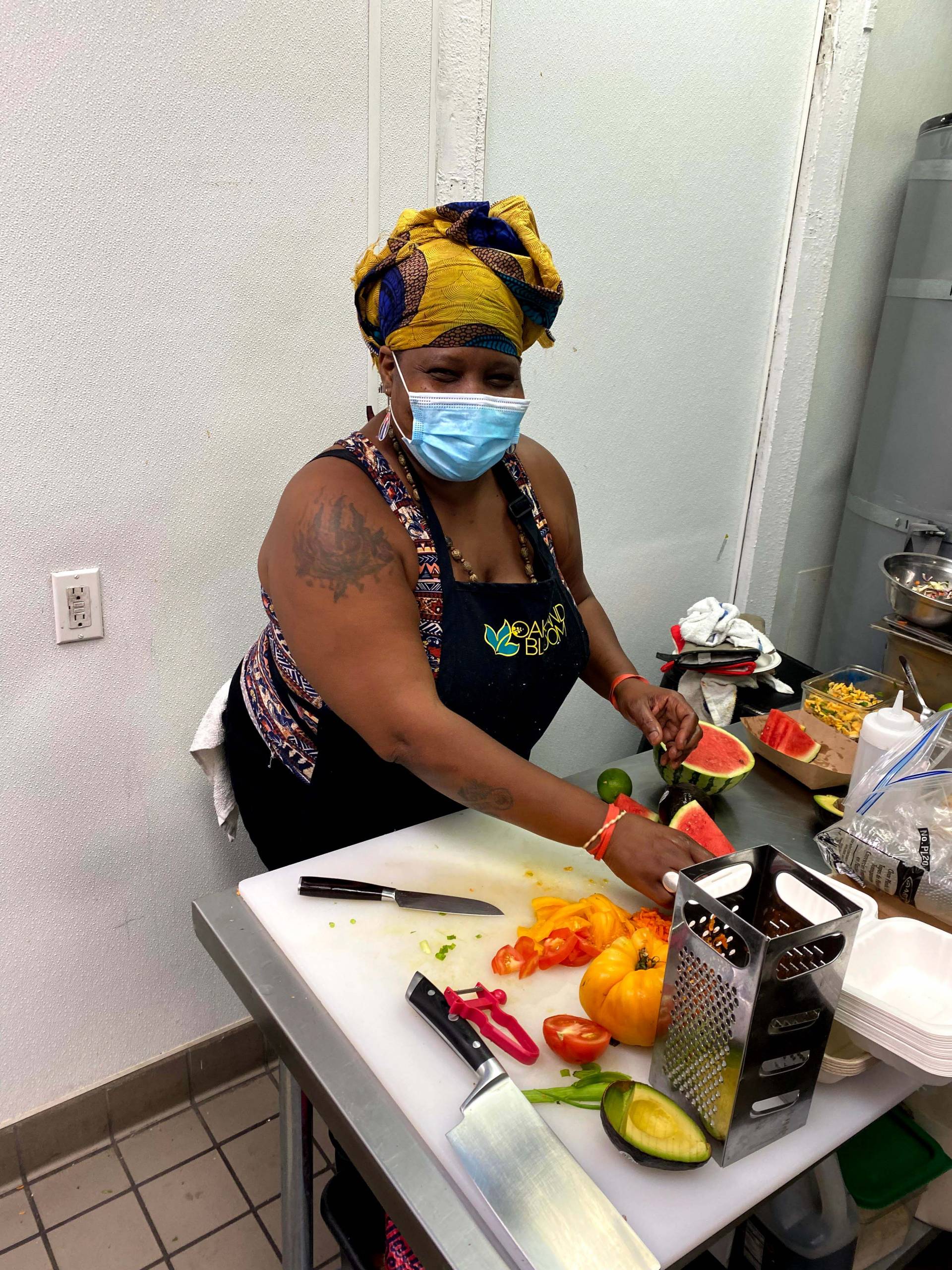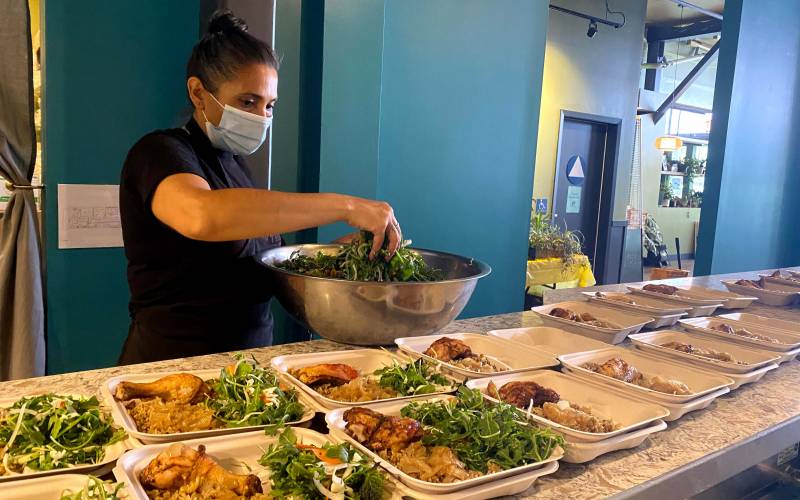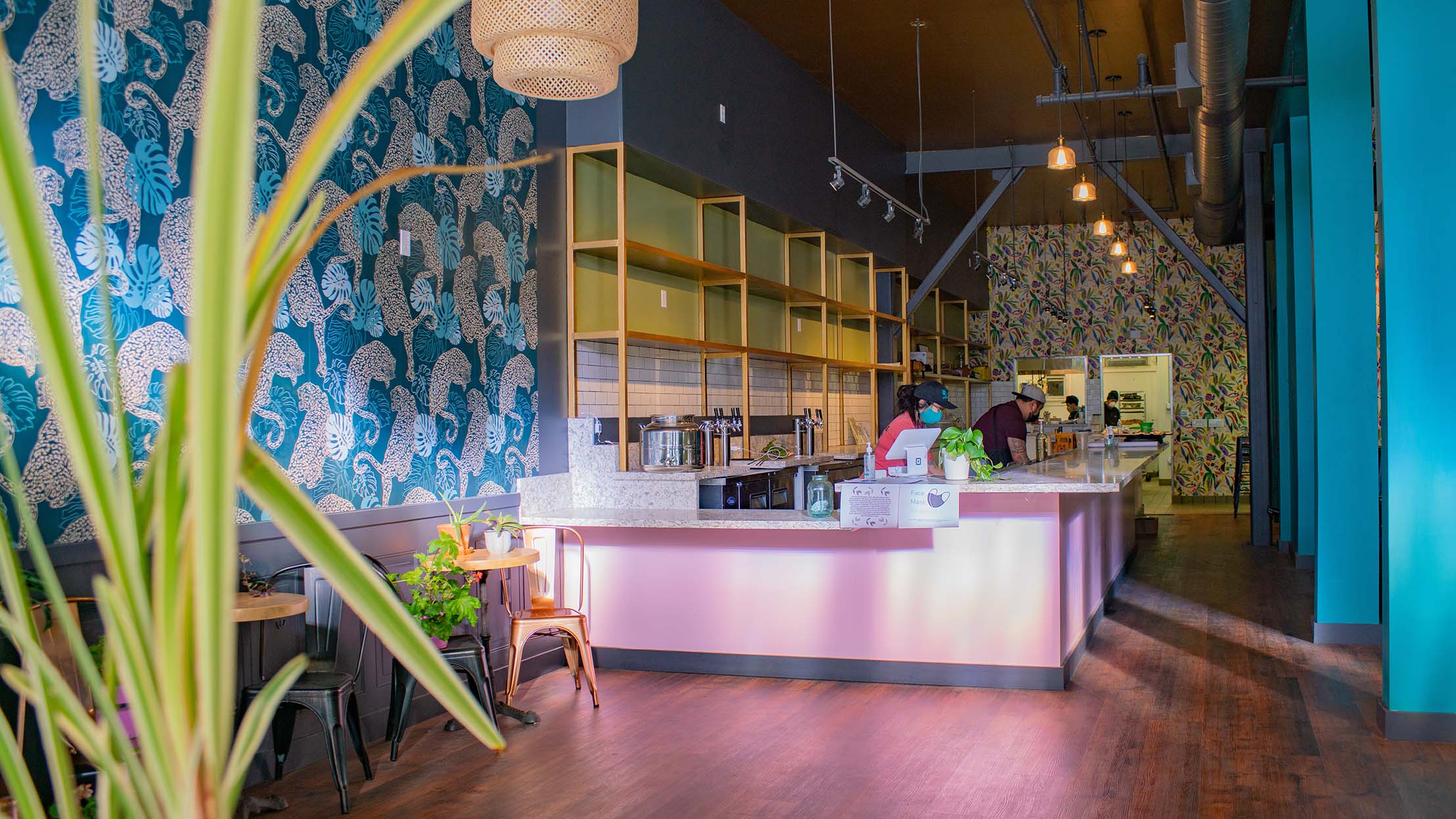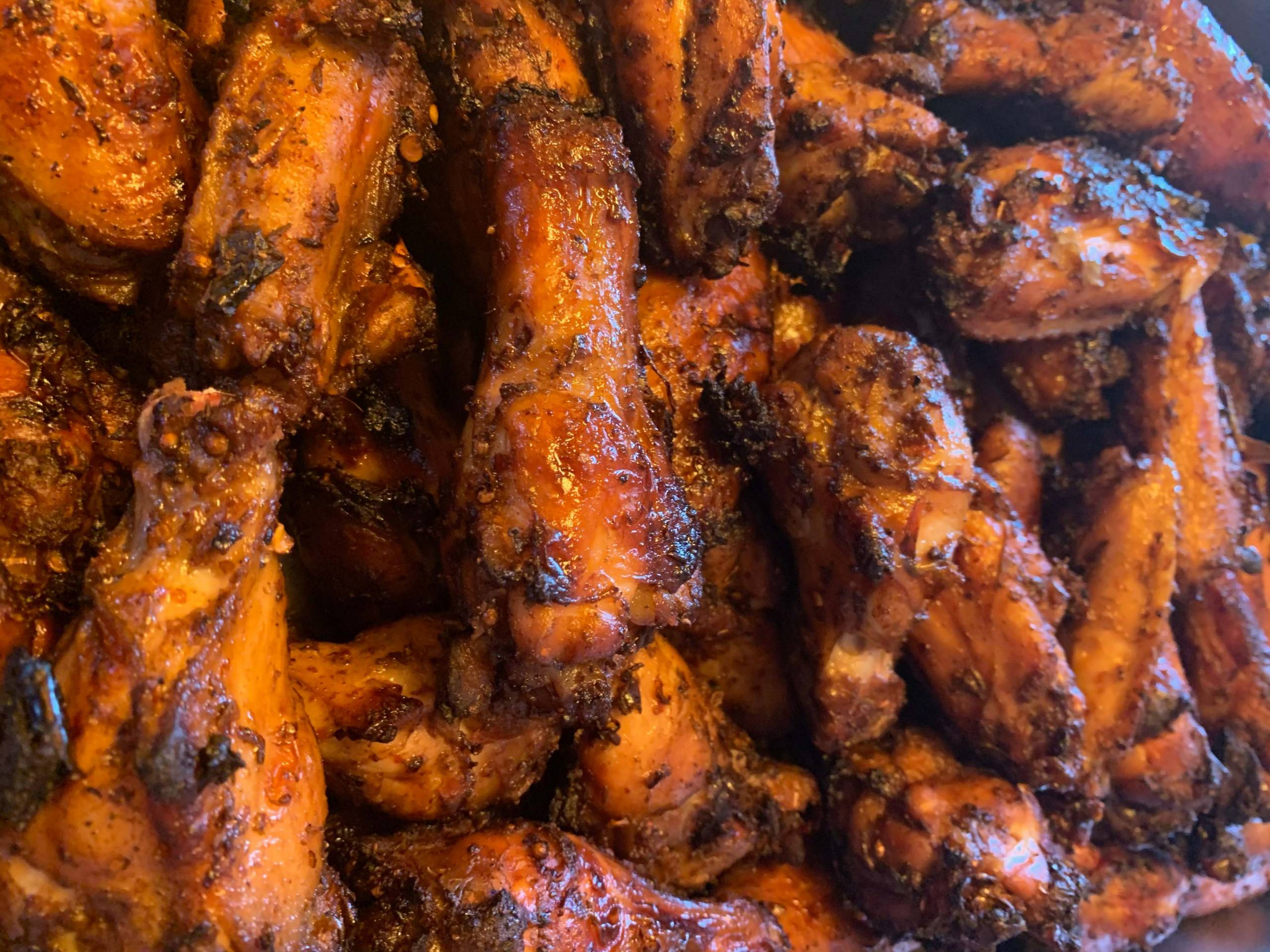Wanda Kruda had been selling plantains and rice from her driveway for about a year when she decided that it was time to take her Oakland-based vegan Cuban food business, Prima’s Corner (aka Rincón de la Prima), to the next level.
Kruda had been cooking almost all her life, including a stint at Reem’s, the popular Arab bakery, in 2016. Her driveway pop-ups were ambitious affairs, often featuring live cumbia or hip-hop and even vegan cooking classes for kids. But she’d reached the limit of how far she could carry the business on her own.

“I tried to do it myself, but it’s a little hard,” Kruda says. “I need to build my relationship with the kitchen.”
So, Kruda enrolled in the kitchen incubator program run by the nonprofit Oakland Bloom, where she’ll spend the next several months learning about “finances, marketing, cash flow—everything” while also building up her repertoire of recipes. She’ll be one of two Oakland Bloom chefs featured at a pop-up at Understory, the incubator program’s partner restaurant, on Wednesday, Sept. 15, serving up a feast of cumin-dusted fried cauliflower “wings,” sweet plantains and lasagna-like Cuban pastelón.
The pop-up is part of a new beginning for Oakland Bloom, which has taken various forms since the immigrant- and refugee-focused kitchen incubator was founded in 2015, most prominently as a series of night market–style pop-ups in 2017. The program was always limited by the fact that it never had a commercial kitchen space of its own, but when the pandemic derailed the restaurant originally slated to open at 528 8th Street in downtown Oakland, one of its majority investors offered to turn the space over to Oakland Bloom.




